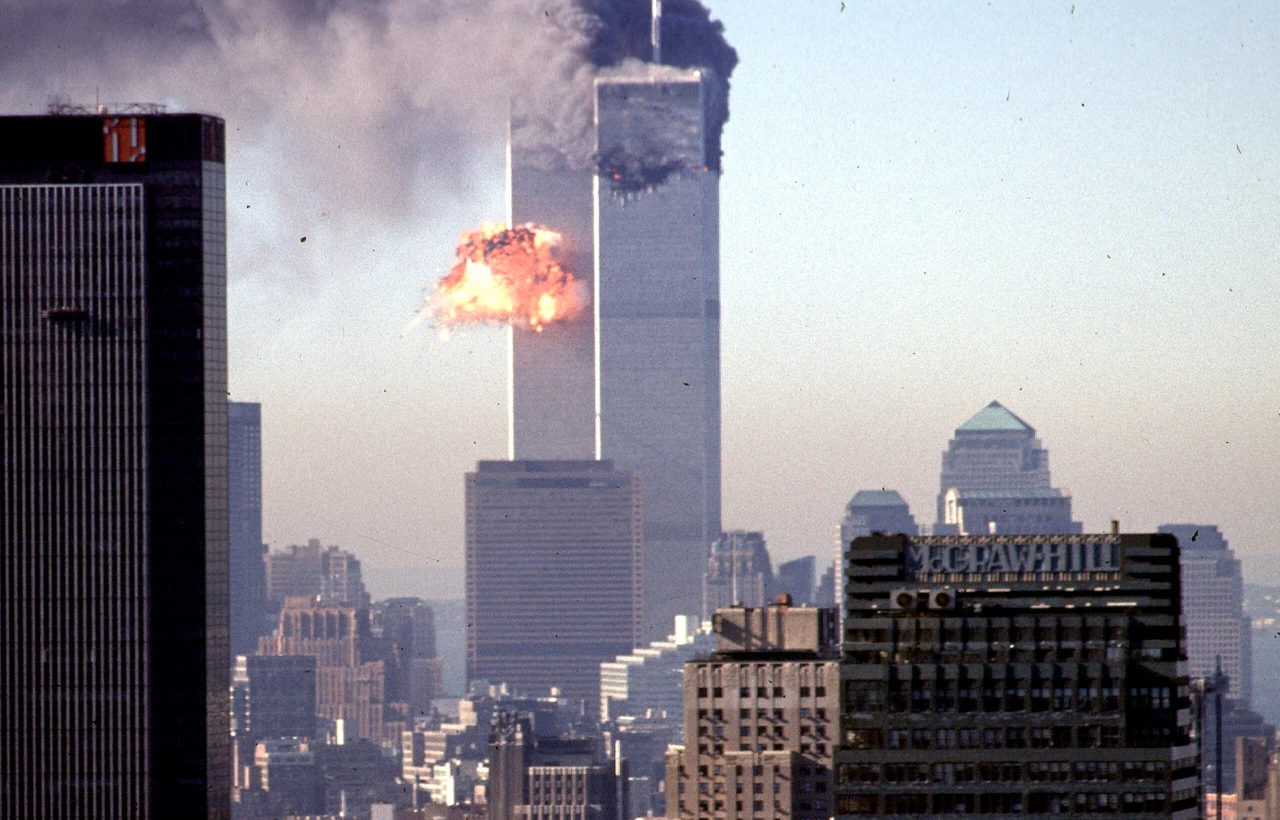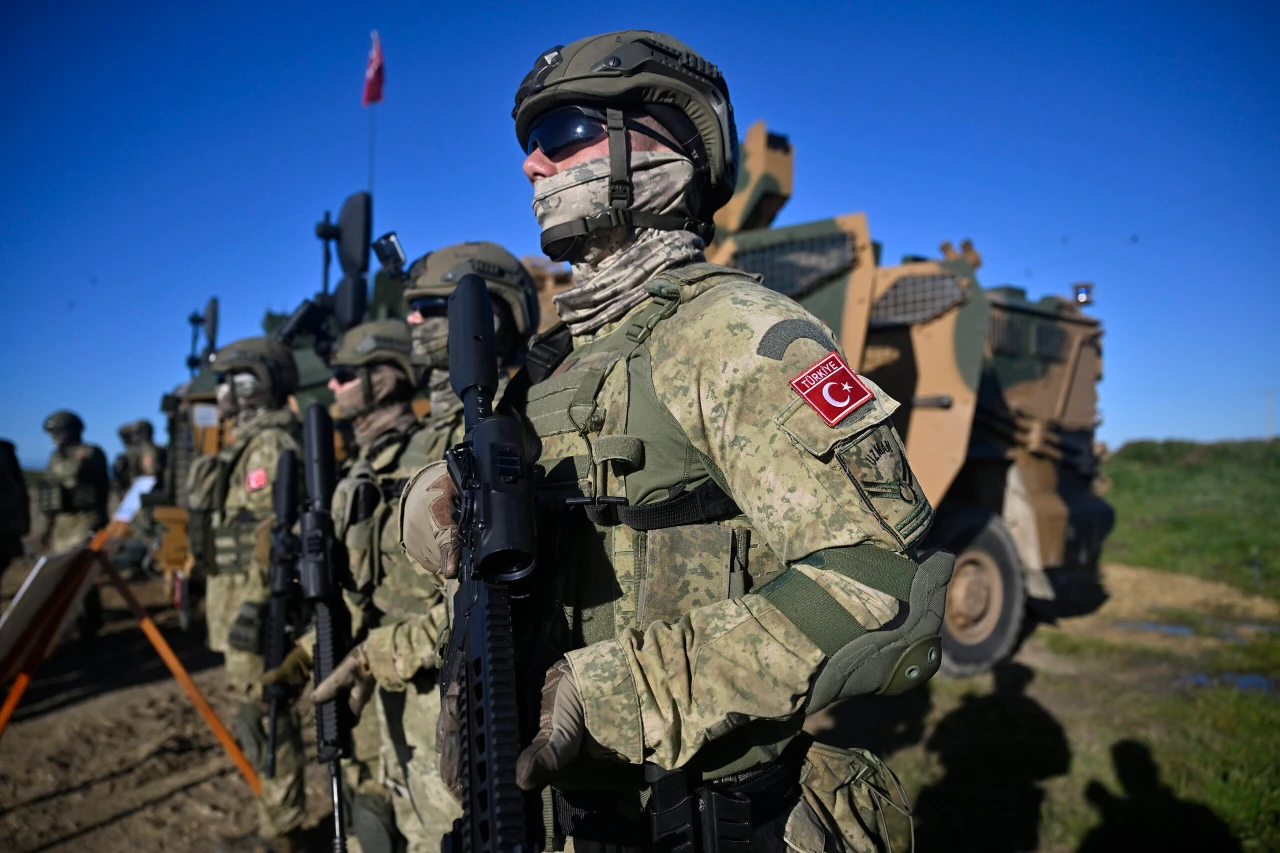US finalizes plea deals with 9/11 plotters, victim families react
 A hijacked commercial plane crashes into the World Trade Center September 11, 2001 in New York, United States. (AFP Photo)
A hijacked commercial plane crashes into the World Trade Center September 11, 2001 in New York, United States. (AFP Photo)
The United States has reached plea agreements with three men accused of plotting the Sept. 11, 2001 attacks.
Khalid Sheikh Mohammed, Walid Muhammad Salih Mubarak bin Attash, and Mustafa Ahmed Adam al-Hawsawi, held at Guantanamo Bay, Cuba, will plead guilty in exchange for avoiding the death penalty.
This agreement marks a pivotal moment in the long-delayed legal proceedings surrounding the 9/11 attacks, which resulted in nearly 3,000 deaths and reshaped U.S. foreign policy.
The Pentagon has not disclosed the full details of the plea deals, but U.S. media reports confirm that the three men will receive life sentences. This development was communicated to the families of 9/11 victims through a letter from prosecutors, with formal pleas expected as early as next week.
Reactions from 9/11 victims’ families to plea deals
The plea deals have sparked mixed reactions from the families of 9/11 victims. Brett Eagleson, president of 9/11 Justice, expressed deep concern over the lack of transparency in the process. “The families are deeply troubled by these plea deals,” he said, urging authorities to investigate further the involvement of Saudi Arabia in the attacks.
Terry Strada, who lost her husband in the attacks, described the plea deal as a “gut-punch” and a victory for the detainees. “This is a victory for Khalid Sheikh Mohammad and the other two,” she stated, emphasizing the emotional impact on the families.
The legal process for the accused has faced significant delays, primarily due to the use of “enhanced interrogation techniques,” including waterboarding. These techniques, widely criticized as torture, have complicated the admissibility of evidence.
Khalid Sheikh Mohammed, the alleged mastermind of the attacks, endured waterboarding 183 times before being transferred to Guantanamo in 2006. This has raised concerns about the integrity of the evidence obtained through such methods.
Plea agreements’ implications for Guantanamo Bay
The plea agreements move the process forward and bring Guantanamo Bay, a symbol of controversial U.S. detention and interrogation practices, closer to closure.
Karen Greenberg, director of the Center on National Security at Fordham University, highlighted the significance of the plea deals.
“This means that the trial, which has been delayed for 12 years, will not happen. It brings us one step closer to closing Guantanamo,” she told Al Jazeera.
The 9/11 attacks, orchestrated by al-Qaida, led to the U.S. launching the “War on Terror” and invading Afghanistan and Iraq. The attacks involved the hijacking of four planes, with two crashing into the World Trade Center in New York, one into the Pentagon, and the fourth in a Pennsylvania field after passengers attempted to thwart the hijackers. The devastation of that day remains the deadliest terrorist attack on U.S. soil.
The involvement of Saudi nationals among the hijackers has prompted ongoing lawsuits against the Saudi government, which denies any connection to the attacks. The plea deals have also sparked political backlash, with Republicans criticizing the Biden administration.
Senate Minority Leader Mitch McConnell condemned the agreements as a “revolting abdication” of the government’s duty to defend America and deliver justice. “The only thing worse than negotiating with terrorists is negotiating with them after they are in custody,” he said.
As the accused prepare to enter their pleas, the families of the victims and the broader public await further details on the terms of the agreements.



